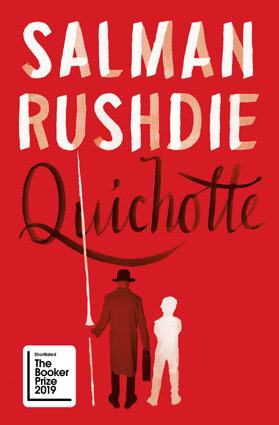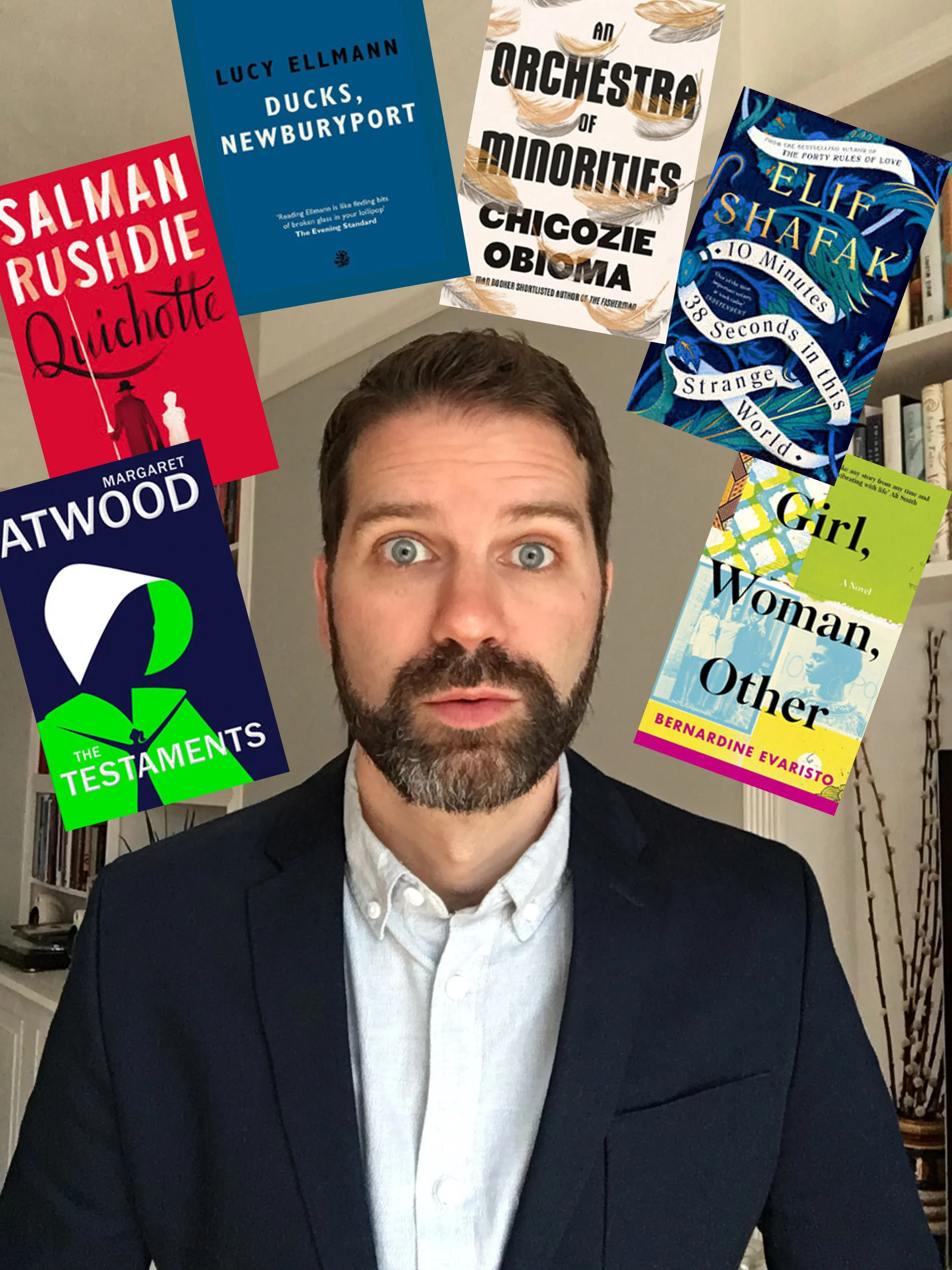I was really looking forward to this novel as the subject matter intrigued me and I’ve been wanting to read more by Rushdie, but I ended up feeling mostly negative towards it. “Quichotte” is Rushdie’s modern day version of ‘Don Quixote’ and primarily concerns Ismail Smile (who dubs himself Quichotte.) He travels across the US on a foolhardy romantic quest to woo Salma R, a famous television personality. In the process he surveys how fiction has become fact and many facts are treated as fiction in this modern day America. This exposes the absurdity of this state of being and captures the tragi-comic position we’re now in while especially highlighting the contentious issues of gun control laws and a corrupt pharmaceutical industry. A certain character muses at one point, “America, what happened to your optimism, your new frontiers, your simple Rockwell dreams?” The novel is justifiably preoccupied with this doleful question.
If the novel had been confined to Ismail’s episodic tales I believe I’d have found this a much more satisfying and pleasurable read. However, Rushdie soon adds a meta-fictional layer where we learn that Ismail’s story is being written by another character named Sam DuChamp, a writer of spy thrillers who is trying out a new kind of novel. This creates another layer which begs the questions: are we writing our own stories or are our stories writing us? What happens when the stories we tell ourselves become both our mental and physical reality? While these narrative gymnastics might be good in concept they felt misjudged and too confusing to me. In addition, the stories of many other characters and sub-plots proliferate throughout the novel such as that of Sam’s sister, a famous London lawyer who has reached a pivotal point in her life. In itself her story is an interesting one but it felt swallowed by the grander self-conscious narrative being constructed. This results in all these tales feeling so over controlled (and sometimes contrived) that I seldom felt any emotional engagement.
It was difficult at times to intellectually engage with the novel as well except the occasional interestingly framed statement. For instance, many of the characters have family secrets and Sam feels this dilemma: “The narrative of your family which you had carried within you, within which in a way you had lived, was false. Or, at the very least, that you had been ignorant of its most essential truth which had been kept from you. Not to be told the whole truth, as sister with her legal expertise would know perfectly well was to be told a lie. That lie had been his truth.” So this builds to a larger question threaded throughout the novel which asks how much truth we’re able to bear both on personal, familial and national levels. If our fundamental beliefs about ourselves, our families and our national identity are shaken are we really happier believing in lies?
Too often these statements and ideas felt like they were pronouncements from Rushdie himself rather than any of the characters. The integrity of his characters is sometimes tested in Rushdie’s use of humour. There are some genuinely funny moments especially in scenes involving Quichotte’s whimsical frame of mind where his idea of the classics are TV dating game shows or when he becomes so delusional that he starts conversing through a TV with a newscaster. But, at other times, the humour feels like it’s being made at the expense of his characters such as when a doctor proposes treating Salma R’s mental health problems with shock treatments and she declares herself “unshockable” or how when she does receive those treatments she describes the experience as a Christmas visit from “sanity Claus”. These feel more like cheap gags rather than details building a believable character. Nor are they satirical statements with deeper meaning.
Since I primarily read this novel because it’s shortlisted for this year’s Booker Prize, it’s interesting to compare it to the novel “Ducks, Newburyport”. Both novels self-consciously consider topical political and social issues in America. And both novels have eerily similar climatic scenes of violence. But these books take a radically different approach to telling their stories. Ellmann’s novel is wholly consumed with the inner life and thoughts of her narrator (except for the sparingly-told tale of the mountain lion.) In contrast, Rushdie’s sprawling novel somersaults through the inner lives of many characters while self-consciously playing with narrative form. He even portentously declares his intention with this novel using the character of Sam who feels himself guided by Cervantes and Arthur C. Clarke. Sam seeks to frame his novel about Quichotte in a picaresque literary tradition: “the episodes of such a work could encompass many manners, high and low, fabulist and commonplace, how it could be at once parodic and original, and so through its metamorphic roguery it could demonstrate and seek to encompass the multiplicity of human life.”
Rushdie certainly manages to capture the multiplicity of life as well as many pressing issues, but this exhausting spoof about our tenuous relationship with truth loses a lot of the pleasure and solace to be found in fiction.









